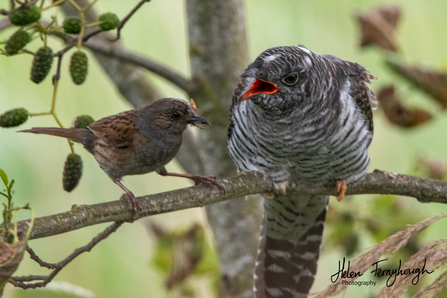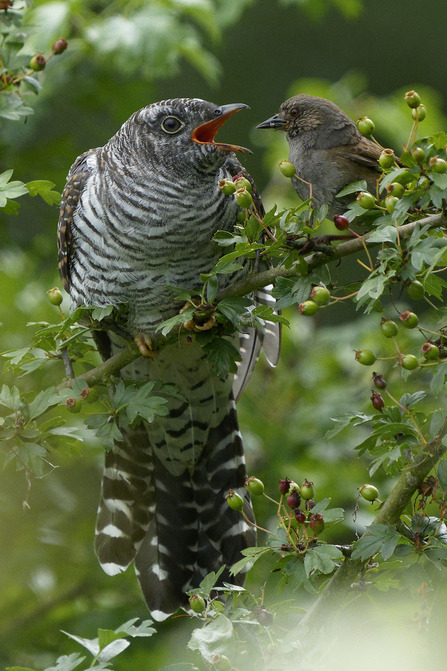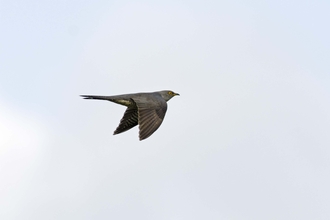Nest rustlers
Young cuckoo chicks grow much bigger than their unsuspecting foster parents and will push any other eggs out of the nest, leaving them to be the sole focus of attention and receptor of food.
Meadow pipits and reed warblers are common victims of this remarkable egg swap strategy, and the female cuckoo has a very specialised adaptation to help her fool potential foster parents. As both of these bird species reject eggs that look different to their own, individual cuckoos specialise on one host species; reed-warbler-specialist cuckoos lay a greenish spotted egg, while meadow-pipit-specialist cuckoos lay a brownish spotted egg.
Speed is also of the essence; the cuckoo drops in, removes an egg from the nest, replaces it with her own egg and flies off all in the space of 10 seconds in order to avoid alerting the host to issues with her nest. Once hatched, the baby cuckoo’s cry sounds just like an entire clutch of hungry baby birds – appealing directly to the caretaking instincts of its foster parent and overriding any suspicion.





